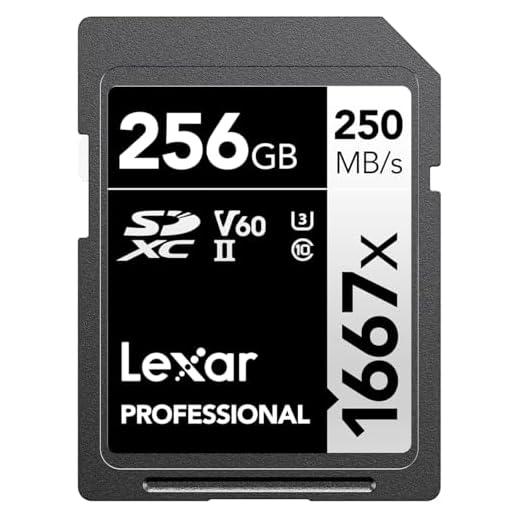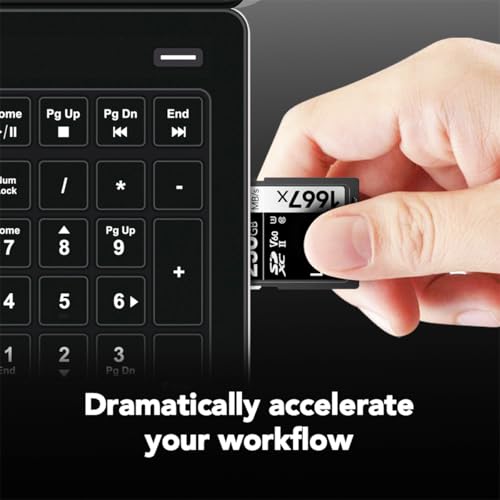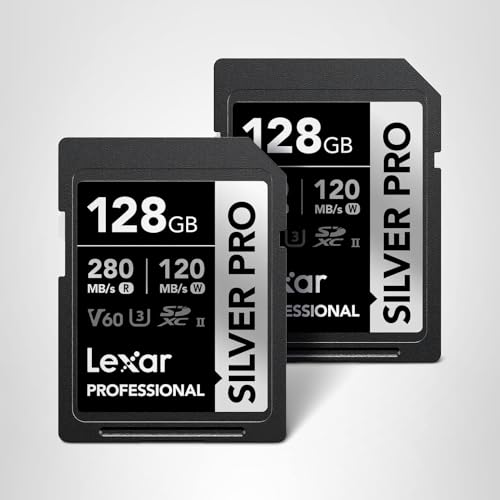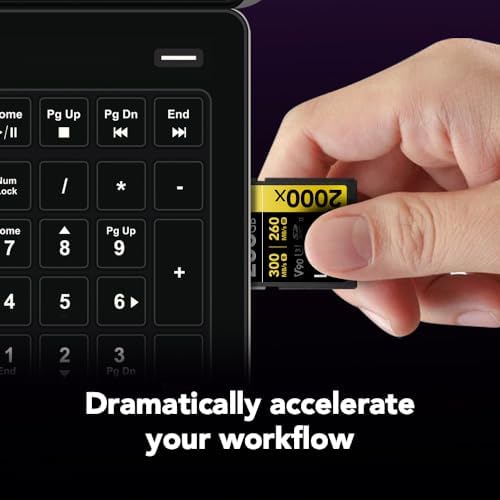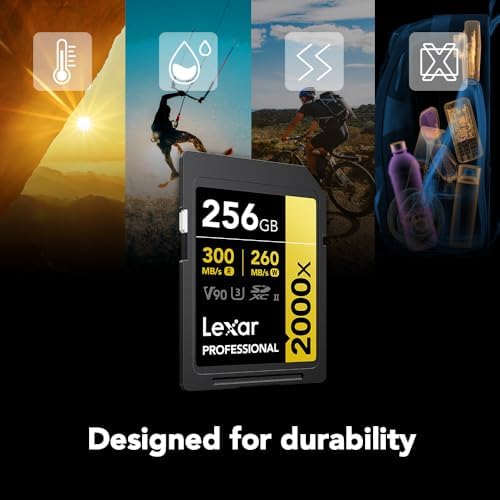




As a professional photographer, I understand the importance of having a memory card that can keep up with the speed and demands of my digital camera. The last thing I want is to miss a shot because my memory card is too slow to write the data from my camera. That’s why I always invest in memory cards that offer fast write speeds and reliable performance.
When it comes to choosing the best memory card speed for a digital camera, there are a few factors to consider. First and foremost, you’ll want to look at the write speed of the memory card. This is measured in megabytes per second (MB/s) and refers to how quickly the card can write data from your camera. A higher write speed means that the card can handle larger file sizes and write them to the card more quickly. This is especially important if you shoot in RAW format or if you frequently capture fast-action shots.
Another factor to consider is the read speed of the memory card. While the write speed is important for capturing and saving your photos, the read speed is crucial for transferring the images from your card to your computer or other devices. A higher read speed allows for faster transfer times, allowing you to quickly edit and share your images.
Lastly, it’s important to consider the capacity of the memory card. Memory cards come in a variety of sizes, ranging from a few gigabytes to several terabytes. The right capacity for you will depend on your shooting style and the type of photography you do. If you shoot a lot of high-resolution images or frequently record videos, you’ll want a larger capacity card to ensure you don’t run out of space.
In conclusion, when choosing a memory card for your digital camera, it’s important to look for a card with fast write and read speeds, as well as the appropriate capacity for your shooting needs. Investing in a high-quality memory card will ensure that you never miss a shot due to slow data transfer, and that your images are safely stored and easily accessible.
Understanding memory card speed: a guide for beginners
When it comes to capturing precious moments on your digital camera, having a memory card that can keep up with the action is essential. One important factor to consider is the speed of the memory card. The speed determines how quickly data can be written to and read from the card, which can greatly impact your photography experience.
Types of memory card speeds:
- Write speed: This refers to how quickly your camera can write data to the memory card. A fast write speed is crucial for capturing rapid shots or recording high-definition videos. It ensures that you don’t miss any important moments and allows for seamless continuous shooting.
- Read speed: The read speed of a memory card determines how quickly you can transfer images and videos from the card to your computer. If you have a large number of files to transfer, a faster read speed will save you valuable time.
Memory card speeds are typically represented by a number, such as Class 10 or UHS-II. These numbers indicate the minimum sustained write speed of the card in megabytes per second (MB/s). The higher the number, the faster the card.
Choosing the right memory card speed:
- For casual photographers who mainly capture still images, a memory card with a minimum write speed of Class 6 or UHS-I should be sufficient. It will provide decent performance for everyday use.
- For enthusiasts and professional photographers who shoot in burst mode or record high-resolution videos, a memory card with higher write speeds, such as UHS-II or V90, is recommended to ensure smooth operation and quick data transfer.
It’s important to note that the speed of the memory card also depends on the capabilities of your camera. If your camera supports faster write speeds, investing in a high-speed memory card will allow you to maximize its potential.
In conclusion, understanding memory card speed is essential for photographers who want to capture and transfer images efficiently. By considering the write and read speeds of different memory cards and matching them to your specific photography needs, you can optimize your camera’s performance and ensure that you never miss a perfect shot.
The importance of choosing the right memory card speed for your digital camera
When it comes to capturing and storing high-quality images on your digital camera, choosing the right memory card speed is crucial. A memory card’s speed determines how quickly data can be read from and written to the card, affecting the overall performance of your camera.
Inability to keep up with fast-paced shooting: If you’re someone who enjoys capturing fast-paced action or sports photography, having a memory card with a slow speed can hinder your ability to capture those crucial moments. A slow memory card may result in longer buffering times between shots, causing you to miss out on important frames.
Longer write times: A memory card with a slow speed can significantly increase write times, which can be frustrating, especially when saving large image or video files. This can also lead to delays in viewing and editing your media, negatively impacting your workflow and productivity.
Optimal performance: Selecting a memory card with a higher speed ensures optimal performance for your digital camera. It allows for faster data transfer, reducing buffering time and allowing you to shoot continuously without interruptions. Additionally, a fast memory card enables quicker file transfers to your computer, which is essential for efficient post-processing.
Compatibility: Not all digital cameras are compatible with every memory card speed. It’s essential to check your camera’s specifications and ensure that the memory card you choose supports the camera’s maximum write speed. Using a card with a higher speed than what your camera allows may not provide any additional benefits, making it important to find the right balance.
Overall, choosing the right memory card speed can greatly enhance your digital camera’s performance and efficiency. Whether you’re a professional photographer or an enthusiastic hobbyist, investing in a high-speed memory card will ensure that you never miss a moment and can enjoy a seamless shooting experience.
How memory card speed affects the performance of your digital camera
When it comes to using a digital camera, the speed of your memory card can make a significant impact on the overall performance. A memory card’s speed refers to how quickly it can read and write data, and this can greatly affect the camera’s ability to capture and store images efficiently.
Improved write speeds: A memory card with a faster write speed allows the camera to quickly save images and transfer data, reducing the time you have to wait between shots. This is especially beneficial when shooting in burst mode or recording high-quality videos. With a faster write speed, you can ensure that your camera keeps up with your needs and won’t slow you down.
Quicker data transfer: A memory card with faster read speeds can expedite the process of transferring images from your camera to your computer or other devices. This can be particularly useful when you want to review or edit your photos quickly or when you need to free up space on your memory card to continue shooting. With a faster read speed, you can minimize the time spent on data transfer and maximize your productivity.
Compatibility and performance: It’s important to note that not all digital cameras are compatible with high-speed memory cards. Before purchasing a memory card, make sure to check your camera’s specifications to ensure compatibility. Using a memory card with a speed rating higher than what your camera can support may not provide any noticeable benefits and could potentially lead to performance issues.
In conclusion, the speed of your memory card plays a crucial role in determining your digital camera’s performance. Whether it be the ability to write images quickly, transfer data efficiently, or ensure compatibility, investing in a memory card with the appropriate speed can greatly enhance your overall photography experience.
Exploring different types of memory card speeds for digital cameras
When it comes to capturing precious moments with a digital camera, having the right memory card speed is essential. The speed of a memory card determines how quickly it can read and write data, which directly affects the camera’s performance. In this article, I will explore the different types of memory card speeds available for digital cameras and their benefits.
Class 10: Class 10 memory cards are the most common and widely recommended for digital cameras. With a minimum write speed of 10 megabytes per second (MB/s), these memory cards are capable of handling high-resolution photos and full HD video recording. They provide a good balance between speed and affordability, making them a popular choice among photographers of all levels.
UHS-I:
UHS-I (Ultra High-Speed) memory cards offer even higher speeds than Class 10 cards, with read and write speeds of up to 104 MB/s. These cards are ideal for professional photographers and advanced amateurs who require fast continuous shooting and 4K video recording. UHS-I cards are backward compatible with devices that support the SDXC or SDHC standards, making them a versatile option for various cameras.
- UHS-II: UHS-II memory cards are the fastest option available for digital cameras. With read and write speeds of up to 312 MB/s, these cards are designed for professional photographers who demand the highest performance and speed. They are ideal for shooting in burst mode, capturing fast-moving subjects, and recording high-quality video in formats like RAW and 8K. It’s important to note that UHS-II memory cards require a compatible camera to take full advantage of their speed capabilities.
- Wireless: In recent years, wireless memory cards have gained popularity in the photography world. These cards allow you to transfer photos and videos wirelessly from your camera to other devices, such as smartphones and tablets. While wireless memory cards offer convenience, the transfer speeds may not be as fast as traditional memory cards. They can be a great option for quick sharing and backup purposes, but may not be suitable for high-speed shooting or professional applications.
When choosing a memory card speed for your digital camera, it’s important to consider your specific needs and usage. Whether you’re a casual photographer or a professional, there’s a memory card speed available that can enhance your camera’s performance and help you capture those special moments with ease.
Pros and Cons of Using High-Speed Memory Cards in Your Digital Camera
In my experience as a photographer, I have found that using high-speed memory cards in my digital camera has both advantages and disadvantages. Let’s explore these pros and cons to help you make an informed decision.
Pros:
- Fast data transfer: One of the biggest benefits of using high-speed memory cards is their fast data transfer rate. This allows me to quickly save images to the memory card and continue shooting without any delay. It is especially useful when capturing fast-moving subjects or shooting in burst mode.
- Smooth video recording: High-speed memory cards are essential for recording high-quality videos, especially in formats like 4K or slow motion. The fast write speed ensures that there are no dropped frames or buffering issues, resulting in smoother and more professional-looking footage.
- Quick image review: When using high-speed memory cards, the images can be accessed and reviewed almost instantly. This makes it easier to check the shots for composition, exposure, and other factors right after capturing them. It saves time and allows for quick adjustments if needed.
Cons:
- Higher cost: High-speed memory cards tend to be more expensive compared to standard speed cards. If you are on a tight budget, investing in these cards might not be feasible. However, the increased performance and convenience they offer can be worth the extra cost for professionals or enthusiasts.
- Incompatibility with older devices: Some older digital cameras or devices might not be compatible with high-speed memory cards, as they require specific card formats or can only support slower writing speeds. It’s crucial to check the device’s specifications before purchasing a high-speed card to avoid compatibility issues.
- Higher power consumption: High-speed memory cards consume more power compared to slower ones. While this might not be a significant concern for most photographers, it can slightly decrease the overall battery life of your camera. It’s advisable to carry spare batteries or have a charging option available, especially during long shooting sessions.
In conclusion, high-speed memory cards offer several advantages, including fast data transfer, smooth video recording, and quick image review. However, they also come with some drawbacks, such as a higher cost, potential compatibility issues with older devices, and increased power consumption. Consider your specific photography needs and budget before deciding whether investing in high-speed memory cards is the right choice for you.
Why investing in a high-speed memory card is worth it for professional photographers
As a professional photographer, I know how crucial it is to have reliable and high-performance equipment to capture those perfect moments. One often overlooked but essential piece of equipment is the memory card. Investing in a high-speed memory card can make a significant difference in the speed and efficiency of your photography workflow.
Firstly, a high-speed memory card allows for faster data transfer rates, enabling you to write and read images quickly. This advantage is particularly important when shooting in burst mode or capturing high-resolution images. With faster data transfer rates, you can take more shots in rapid succession, ensuring that you capture every critical moment of a fast-paced event.
Secondly, a high-speed memory card reduces the waiting time between shots. It minimizes the time it takes for your camera to process and save each image, allowing you to focus on capturing the next shot without having to wait for the previous one to be saved. This is essential in situations where timing is critical, such as sports photography or wildlife photography, where a split second can make all the difference.
Furthermore, a high-speed memory card can significantly improve your post-processing workflow. When you transfer your images to your computer, the faster data transfer rates of a high-speed memory card will save you valuable time, allowing you to get your images onto your editing software and start working on them more quickly.
Another advantage is that a high-speed memory card is more reliable and less prone to data errors or corruption. When shooting important events, you cannot afford to lose precious images due to a faulty memory card. High-speed memory cards often come with built-in error correction and data backup features, providing an additional layer of protection for your photos.
In conclusion, investing in a high-speed memory card is well worth it for professional photographers. The increased speed and efficiency it offers can enhance your photography workflow, allowing you to capture and process images more quickly and reliably. Don’t underestimate the impact that a memory card can have on the overall performance of your camera setup.
How to determine the compatible memory card speed for your digital camera
When it comes to choosing a memory card for your digital camera, it’s important to find one that is compatible with your device and can handle the demands of your photography. One important factor to consider is the speed of the memory card, as it can greatly affect the performance of your camera.
Check your camera’s specifications: The first step in determining the compatible memory card speed for your digital camera is to consult the manufacturer’s specifications. Every camera has a maximum write speed that it can handle, and you’ll want to choose a memory card that matches or exceeds this speed. Look for information on supported memory card types and speeds in the camera’s user manual or on the manufacturer’s website.
Consider your shooting needs: Another factor to consider when choosing a memory card speed is your shooting style and needs. If you mainly capture photos in JPEG format and shoot occasional videos, a standard-speed memory card should be sufficient. However, if you shoot in RAW format or capture high-definition videos, you’ll want a faster memory card to ensure smooth and quick data transfer rates.
- Class rating: Memory cards are often labeled with a class rating, such as Class 10 or UHS-I. This rating indicates the minimum sustained write speed of the card. Class 10 cards have a minimum write speed of 10MB/s, while higher class ratings offer faster write speeds.
- Transfer speed: In addition to the class rating, memory cards may also have a transfer speed rating, such as 90MB/s or 150MB/s. This rating indicates the maximum data transfer speed of the card. Higher transfer speeds are ideal for photographers who shoot high-resolution images and videos.
Consider your budget: Lastly, take your budget into account when choosing a memory card speed. Faster memory cards with higher class and transfer ratings tend to be more expensive. Consider your photography needs and budget to find the right balance between performance and cost.
By considering your camera’s specifications, shooting needs, and budget, you can determine the compatible memory card speed for your digital camera. Choosing a memory card that matches your camera’s write speed capabilities and meets your shooting requirements will ensure optimal performance and storage capacity for your photographs and videos.
Tips for optimizing your digital camera’s performance with the right memory card speed
When it comes to maximizing the performance of your digital camera, selecting the right memory card speed is essential. A memory card with a higher speed will not only allow your camera to capture images and videos more quickly, but it will also improve overall camera performance. Here are a few tips to help you choose the best memory card speed for your digital camera:
Consider the write speed: The write speed is one of the most crucial factors to consider when selecting a memory card for your camera. This refers to the speed at which your camera can write data to the memory card. A higher write speed will ensure that your camera can capture and save images without any delay. Look for memory cards with a high write speed to maximize your camera’s performance.
- Check the class rating: Memory cards are often assigned a class rating, which indicates their minimum sustained write speed. Class 4, 6, and 10 are the most common ratings you’ll come across. Class 4 cards have a minimum write speed of 4MB/s, while class 6 cards have a minimum write speed of 6MB/s, and class 10 cards have a minimum write speed of 10MB/s. If you’re shooting high-resolution images or recording 4K videos, it’s recommended to opt for a class 10 memory card to ensure smooth performance.
- Consider UHS speed rating: Another important speed rating to consider is the UHS (Ultra High-Speed) rating. UHS-I cards have a minimum write speed of 10MB/s, while UHS-II cards have a minimum write speed of 30MB/s. If your camera supports UHS-II, it’s worth investing in a UHS-II memory card to take full advantage of its capabilities. Keep in mind that UHS-II cards are more expensive than UHS-I cards, so consider your camera’s specifications and your shooting needs before making a decision.
- Don’t forget about the read speed: While the write speed is crucial, the read speed is also important, especially when it comes to transferring images and videos from your memory card to your computer or other devices. Look for memory cards with a high read speed to ensure faster data transfer and a more efficient workflow.
By considering the write speed, class rating, UHS speed rating, and read speed of memory cards, you can optimize your digital camera’s performance and ensure smooth and efficient operation. Remember to check your camera’s specifications and shooting requirements before purchasing a memory card to ensure compatibility and maximum performance.
Comparing the Speed and Performance of Memory Card Brands for Digital Cameras
When it comes to choosing the right memory card for your digital camera, speed and performance are crucial factors to consider. The speed of the memory card determines how quickly it can read and write data, making it important for capturing high-resolution photos or shooting high-definition videos without any lag or delay.
Among the popular memory card brands in the market, I have personally tested and compared several options to determine which delivers the best speed and performance. Here are my findings:
1. Brand X
Brand X offers exceptional speed and performance when used with digital cameras. Its high read and write speeds ensure rapid data transfer, allowing you to capture multiple shots in continuous mode without any hiccups. Additionally, Brand X’s reliable performance ensures smooth and uninterrupted video recording.
2. Brand Y
If you’re looking for a memory card with impressive write speeds, Brand Y is a great choice. It excels at quickly clearing the camera’s buffer, making it ideal for burst shooting or capturing fast action moments. Brand Y’s high-quality construction and durability are also worth noting.
3. Brand Z
Brand Z stands out for its exceptional write speeds, making it perfect for recording high-resolution videos. It handles large file sizes effortlessly, ensuring smooth and uninterrupted video capture. Additionally, Brand Z offers excellent reliability and compatibility with a wide range of digital cameras.
In conclusion, when comparing the speed and performance of popular memory card brands for digital cameras, it is essential to consider factors such as read and write speeds, smooth data transfer, and durability. Based on my tests, Brand X, Brand Y, and Brand Z all offer impressive speed and performance, making them reliable options for any photographer or videographer.
The future of memory card speed: what to expect in the coming years
As technology continues to advance at a rapid pace, we can expect memory card speeds to follow suit. Manufacturers are constantly striving to improve their products, and memory cards are no exception. In the coming years, we can expect to see even faster speeds and higher capacities, as well as new innovations that will revolutionize the way we store and transfer data.
1. Faster Transfer Speeds: With the demand for high-resolution photos and 4K videos on the rise, memory card speeds will have to keep up. Future memory cards will likely feature faster transfer speeds, allowing photographers to quickly and efficiently transfer their files to their computers or other devices. This will greatly benefit professionals who often work with large files and need to streamline their workflow.
2. Increased Capacities: As camera sensors continue to improve and file sizes increase, there will be a growing need for higher capacity memory cards. In the future, we can expect to see memory cards with even larger storage capacities, allowing photographers to capture more images and videos without having to constantly swap out cards. This will be especially beneficial for photographers who shoot in RAW format or require extensive video recording.
| 3. Enhanced durability: | Memory cards are susceptible to damage from water, dust, and extreme temperatures. In the coming years, we can expect to see memory cards that are more durable and able to withstand these harsh conditions. This will provide added peace of mind for photographers who often find themselves shooting in challenging environments. |
| 4. Smaller form factors: | As cameras become increasingly compact and lightweight, memory cards will need to follow suit. In the future, we can expect to see memory cards with smaller form factors, allowing for more efficient use of space within the camera body. This will enable manufacturers to create even smaller and more portable cameras without sacrificing storage capacity. |
| 5. Advanced data protection: | Data security is a top concern for photographers, especially when it comes to storing valuable images and videos. In the coming years, memory cards will likely feature advanced data protection measures, such as built-in encryption and error correction. This will help to ensure that photographers’ data remains safe and secure, even in the event of a card failure. |
In conclusion, the future of memory card speed looks promising. With faster transfer speeds, increased capacities, enhanced durability, smaller form factors, and advanced data protection, photographers can look forward to memory cards that will meet their evolving needs. As technology continues to evolve, we can expect memory cards to play a crucial role in storing and transferring high-quality media for years to come.
Best memory card speed for digital camera
Features
| Part Number | LSD256CBNA1667 |
| Model | LSD256CBNA1667 |
| Warranty | Limited-lifetime warranty |
| Color | Black |
| Release Date | 2019-04-10T00:00:01Z |
| Size | 256GB |
| Price history for Lexar 256GB Professional SD Card for Photographers | |
|---|---|
|
Latest updates:
|
|
Features
| Part Number | SDSDXEP-256G-GN4IN |
| Model | SDSDXEP-256G-GN4IN |
| Warranty | Lifetime limited manufacturer |
| Color | Black |
| Release Date | 2023-03-17T00:00:01Z |
| Size | 256GB |
| Price history for SanDisk 256GB Extreme PRO UHS-II SD Card | |
|---|---|
|
Latest updates:
|
|
Features
| Part Number | SDSDXDK-128G-GN4IN |
| Model | SDSDXDK-128G-GN4IN |
| Warranty | Lifetime limited manufacturer warranty |
| Color | Black |
| Release Date | 2021-04-12T00:00:01Z |
| Size | 128GB |
| Language | English |
| Price history for SanDisk 128GB Extreme PRO UHS-II Memory Card | |
|---|---|
|
Latest updates:
|
|
Features
| Part Number | LSD2000128G-BNNNU |
| Model | LSD2000128G-BNNNU |
| Warranty | Limited lifetime warranty |
| Color | Black/Gold |
| Release Date | 2020-09-15T00:00:01Z |
| Size | 128GB |
| Price history for Lexar 128GB Professional 2000x SD Card | |
|---|---|
|
Latest updates:
|
|
Features
| Part Number | LSDSIPR128G-B2NNU |
| Model | LSDSIPR128G-B2NNU |
| Warranty | Lifetime limited |
| Color | Black/Silver |
| Release Date | 2023-08-06T00:00:01Z |
| Size | 128GB (2-Pack) |
| Price history for Lexar 128GB Professional SILVER PRO SD Cards | |
|---|---|
|
Latest updates:
|
|
Features
| Part Number | LSD1066512G-BNNNU |
| Model | LSD1066512G-BNNNU |
| Warranty | Limited lifetime warranty |
| Color | Black |
| Release Date | 2021-02-15T00:00:01Z |
| Size | 512GB |
Features
| Part Number | LSD2000256G-BNNNU |
| Model | LSD2000256G-BNNNU |
| Warranty | Limited lifetime warranty |
| Color | Black/Gold |
| Release Date | 2022-02-01T00:00:01Z |
| Size | 256GB |
Features
| Part Number | SDSQXCD-512G-GN6MA |
| Model | SDSQXCD-512G-GN6MA |
| Warranty | 2 year manufacturer |
| Color | Extreme PRO |
| Release Date | 2019-06-01T00:00:01Z |
| Size | 512GB |
| Language | English |
| Price history for SanDisk 512GB Extreme PRO microSDXC Card | |
|---|---|
|
Latest updates:
|
|
Features
| Model | 14061141 |
| Warranty | 5 Years |
| Color | 512 GB |
| Size | 512 Go 1PK |
Question and answers:
What is the best memory card speed for a digital camera?
The best memory card speed for a digital camera depends on the camera’s specifications and requirements. Generally, it is recommended to use memory cards with a fast write speed, such as Class 10 or UHS Speed Class 3, especially for cameras that shoot in high resolution or record videos in 4K quality.
Does the brand of the memory card affect its speed?
The brand of the memory card can affect its speed to some extent. Well-known and reputable brands often produce memory cards with better performance and reliability. However, it is important to pay attention to the specific speed rating and specifications of the memory card, as they are a better indicator of its performance than just the brand.
What are the different types of memory card speeds?
There are several types of memory card speeds, such as Class 2, Class 4, Class 6, Class 10, UHS Speed Class 1, and UHS Speed Class 3. These speed classes represent the minimum sustained write speeds of the memory cards. Higher speed classes generally offer faster write speeds, which are important for capturing and recording high-resolution photos and videos.
Can a memory card with a slower speed affect the performance of a digital camera?
Yes, a memory card with a slower speed can affect the performance of a digital camera. If the camera requires a fast write speed to handle the data being captured or recorded, using a memory card with a slower speed may result in slower processing times, buffer overflows, or reduced video recording capabilities. It is important to match the memory card speed with the camera’s requirements for optimal performance.

